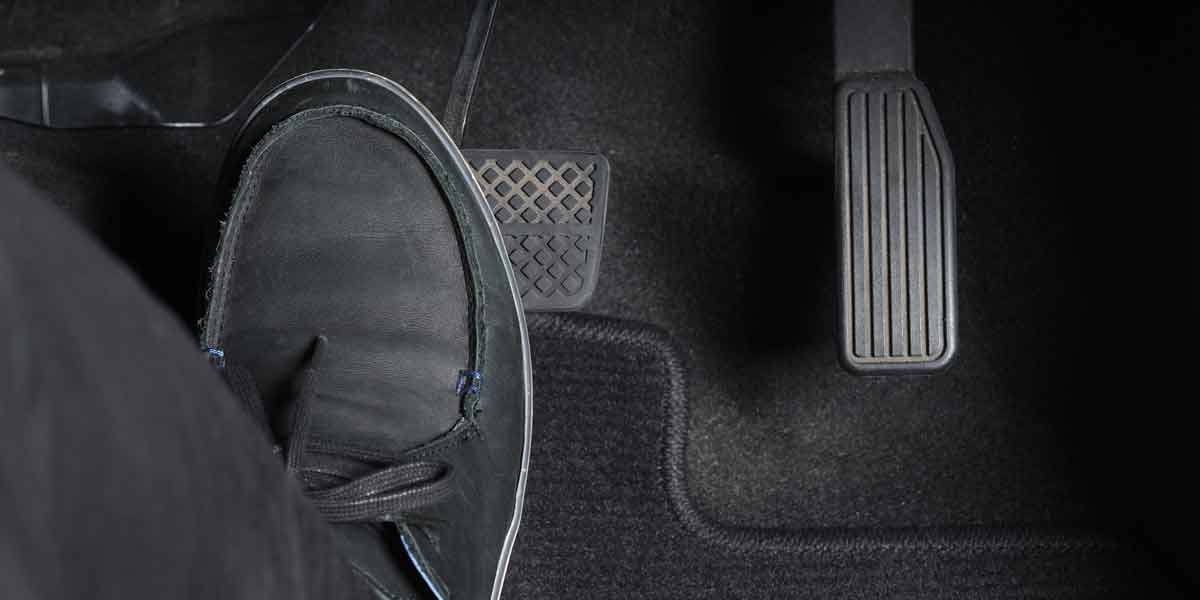Have you ever wondered why your car shakes when you hit the brakes? This can be a bit scary and confusing. When your car shakes when braking, it usually means something’s wrong with the parts that help it stop. It’s important to figure out what’s causing this so you can fix it and drive safely. This shaking can happen for several reasons, like problems with the brake rotors or other brake system parts. Let’s look at common reasons why your car might shake when you brake.
Warped Brake Rotors
Brake rotors are big discs that sit inside the wheels. When you hit the brakes, the brake pads squeeze these rotors to slow down the car. If the rotors are warped, they’re not flat anymore. This means the brake pads can’t squeeze them evenly, and that can make the car shake.
Rotors can get warped if they get too hot. This can happen if you brake a lot, like when you’re going down a long hill, or if you frequently stop really quickly. Sometimes, it’s just because the rotors are old. They might make a squeaking or grinding noise when they’re warped.
Worn Brake Pads
Brake pads are an essential part of your car’s braking system. They press against the brake rotors to slow down or stop your vehicle. When these pads wear out, they can’t do their job correctly, leading to shaky brakes. As brake pads get used, they become thinner and less effective. This thinning can cause uneven contact with the rotors, resulting in a shaking or vibrating sensation when you apply the brakes. Besides the vibration, you might hear a squealing or grinding noise, which is another sign that your brake pads are worn out. Regular checks and replacements of brake pads are part of good car care and can prevent a lot of brake problems, including your car shaking when braking.
Misaligned Wheels
Wheel alignment refers to the angle of your wheels in relation to each other and the car’s body. If the wheels are not aligned properly, it can lead to various issues, including braking vibrations. Misalignment can happen gradually as you drive your car, especially if you drive on rough roads, hit potholes, or bump into curbs. It can cause uneven tire wear and strain your car’s suspension and steering systems. When you brake, this misalignment can make your car shake or pull to one side.
Correcting misaligned wheels can stop the shaking and improve your car’s overall handling and tire life. It’s a good idea to check your wheel alignment regularly, especially if you notice any unusual shaking or pulling when braking. This ensures your car drives smoothly and your tires last longer.
Tire Wear and Balance
Tires are the only part of your car that touch the road, so their condition dramatically affects how your car drives. Tires can wear out unevenly for several reasons. If your car’s alignment is off or you haven’t rotated your tires regularly, some parts of the tire might wear down more than others. This uneven wear can make your car shake. Also, if your tires need to be balanced correctly, they can cause vibrations. Balancing means spreading the weight evenly around each tire and wheel. If it’s not even, it can make your car feel shaky, especially at higher speeds or when you brake.
Faulty Brake Calipers
Brake calipers are part of your car’s braking system. They push the brake pads against the rotors to slow down your car. If a caliper is not working right, it can cause your car to shake when you brake. Brake calipers can get stuck or not slide smoothly because of dirt or rust. If one caliper is sticking and the others aren’t, it can make your car brake unevenly. This uneven braking can make your car shake. Sometimes, a caliper can also leak brake fluid, which can cause braking problems and lead to shaking. Fixing faulty brake calipers can make your car stop smoothly and safely without shaking.
Suspension and Steering System Problems
The suspension and steering systems are key to how your car drives and handles the road. If there are problems with these systems, it can lead to your car shaking, especially when you slow down or stop. The suspension system includes parts like shocks, struts, and springs. These parts help keep your car steady and smooth as it goes over bumps and turns corners. If these parts are worn out or broken, your car might not handle bumps well, and it can start shaking. The steering system, which lets you control where your car goes, can also cause shaking if there’s a problem. Parts like tie rods and ball joints, which connect the steering system to the wheels, can wear out and make your car shake when you brake.
Loose or Worn Wheel Bearings
Wheel bearings are important parts that help your car’s wheels spin smoothly. They sit in the hub of each wheel. If these bearings are loose or worn out, they can cause many problems, including making your car shake. Wheel bearings can get worn out from driving a lot, especially on rough roads. They can also get damaged if they’re not sealed right and dirt or water gets in. If your wheel bearings are wrong, you might hear a grinding noise or feel your car shaking, especially when you turn or brake.
Eliminate the Shake: Upgrade Your Corvette Brakes with Top Flight Automotive
Whether replacing worn brake pads, fixing misaligned wheels, or addressing suspension and steering system problems, our range of Corvette brakes and related components will meet your needs. Many of our products are in stock and ready for immediate shipment, with several eligible for same-day shipping to keep your repair schedule on time. Visit us today to find the perfect solution for your Corvette, Mustang, or Camaro and enjoy a smooth, shake-free ride.










Leave a Response